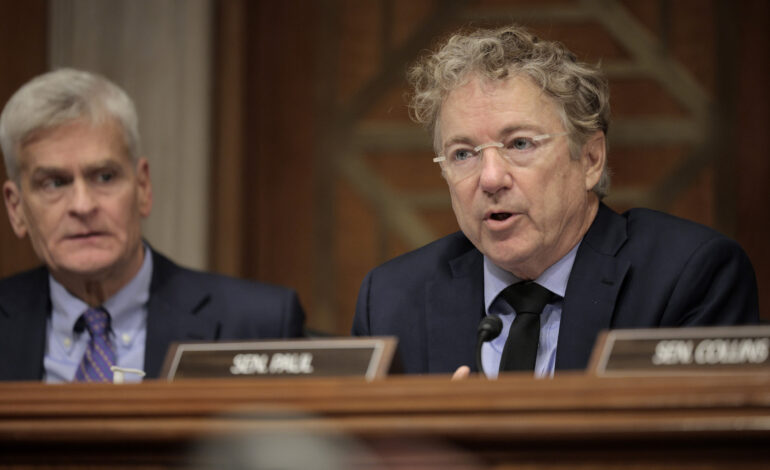Republican Senators Debate Hepatitis B Vaccine for Newborns

A fierce debate has erupted among Republican Senators regarding the administration of the hepatitis B vaccine to newborns. Senators Bill Cassidy and Rand Paul took to social media to express opposing views on the necessity of vaccinating infants at birth. The controversy intensified following remarks made by Dr. Demetre Daskalakis, a former official at the Centers for Disease Control and Prevention (CDC), raising concerns about the direction of vaccine policy under recent leadership changes.
Senator Paul, an ophthalmologist, asserted in a post on X that there is “no medical reason” to administer the hepatitis B vaccine to newborns if their mothers are not infected with the virus. In response, Senator Cassidy, a physician and chair of the Senate Committee on Health, Education, Labor and Pensions, countered that this claim is “not true.” He highlighted that infants born to mothers infected with hepatitis B face a substantially increased risk of developing liver cancer and transmitting the virus to others.
Both senators are members of the Senate Committee on Health, Education, Labor and Pensions, which plays a crucial role in shaping public health policy. Cassidy’s leadership position has placed him in a particularly influential role during this contentious debate.
Impact of Leadership Changes on Vaccine Policy
The discord comes in the wake of actions taken by Robert F. Kennedy Jr., Secretary of Health and Human Services, who has been vocal in his skepticism towards vaccines. Earlier this year, he dismissed all members of the Advisory Committee on Immunization Practices (ACIP) and replaced them with a group of individuals who share his views. This decision has led to concerns about the potential alteration of vaccine recommendations, including the protocol for administering the hepatitis B vaccine at birth.
Dr. Daskalakis, who resigned following the recent ouster of CDC Director Susan Monarez, expressed his fears during an appearance on ABC’s This Week. He warned that the new advisory panel might attempt to change the practice of administering the hepatitis B vaccine to newborns. Daskalakis stated, “If you have a mother who’s not gone to prenatal care, who comes in to deliver, we have one bite at that apple so that child gets that important hepatitis B vaccine.”
Senator Cassidy has raised alarms regarding the upcoming ACIP meeting scheduled for September 18, 2025. He called for the meeting to be “indefinitely postponed” due to the significant changes in leadership and the absence of a scientific process. Cassidy emphasized that any recommendations made during the meeting should be viewed as lacking legitimacy given the current turmoil within the CDC.
Public Health Implications of the Debate
The hepatitis B vaccine plays a critical role in preventing chronic infection, which can lead to serious health issues later in life, including cirrhosis and liver cancer. Cassidy pointed out that if an infant is infected at birth, there is a 95 percent chance of chronic infection unless the child receives the vaccine, which reduces that risk to less than 5 percent.
As this debate unfolds, the implications for public health are significant. The potential changes in vaccination policy could affect the immunization schedule for newborns, a critical element of preventive healthcare.
In a recent statement, White House Press Secretary Karoline Leavitt reiterated the administration’s commitment to restoring trust in the CDC and ensuring that its leadership aligns with the core mission of safeguarding public health. The upcoming ACIP meeting will be open to public comment, allowing stakeholders to voice their opinions on the vaccine schedule and related policies.
As the situation develops, the dialogue between Senators Cassidy and Paul highlights the broader national conversation regarding vaccination and public health policy, raising questions about the balance between personal beliefs and community health needs.






